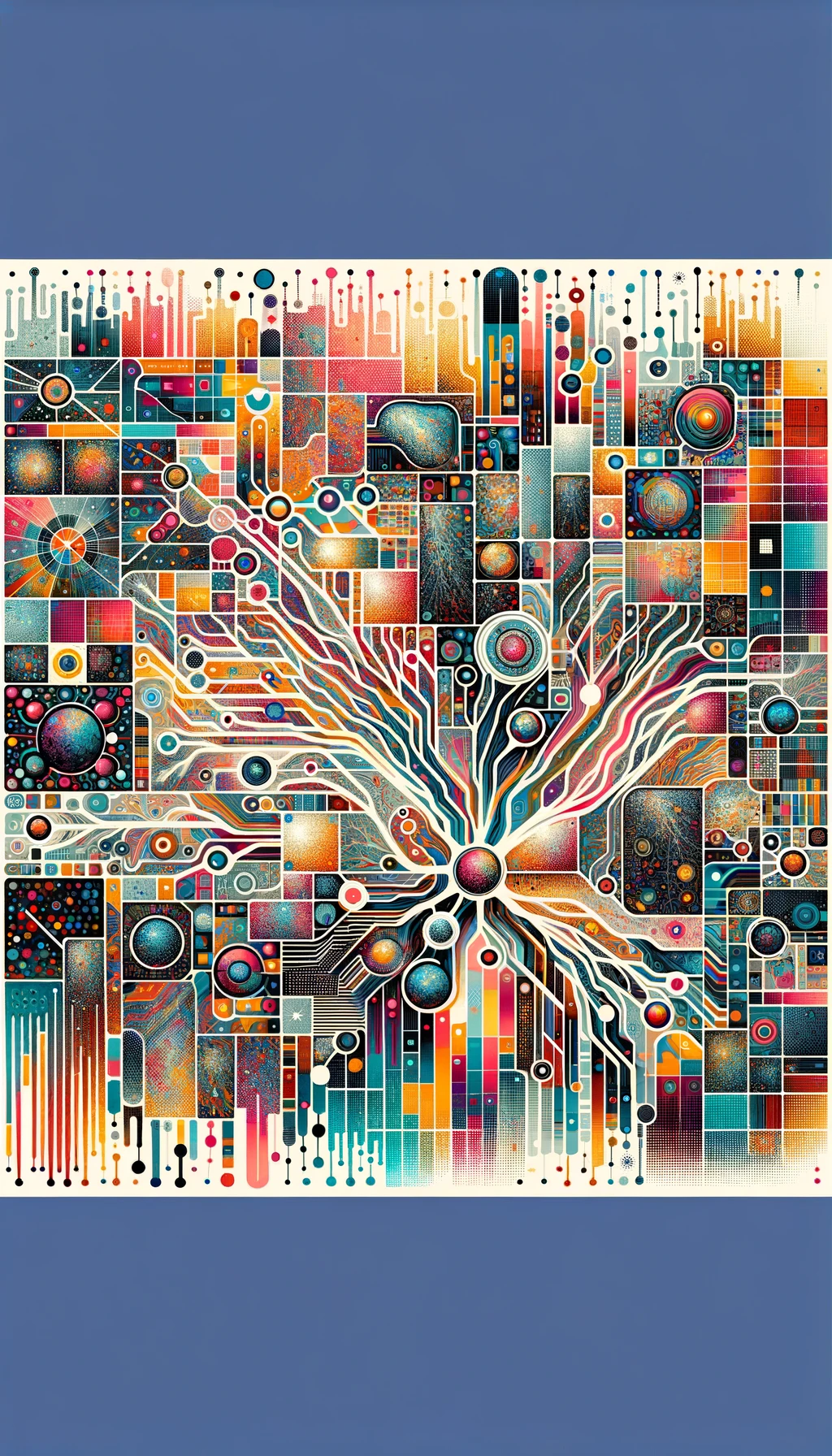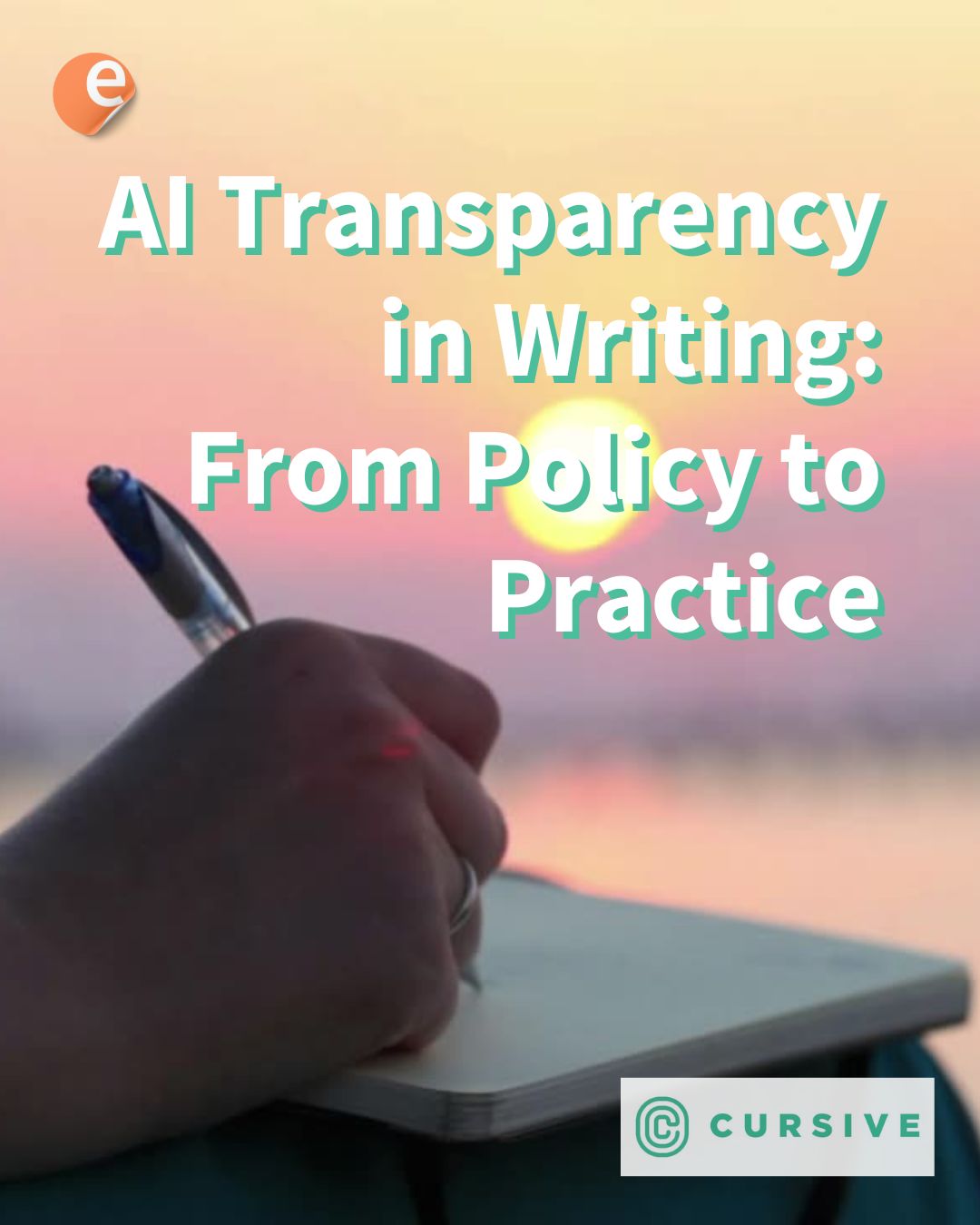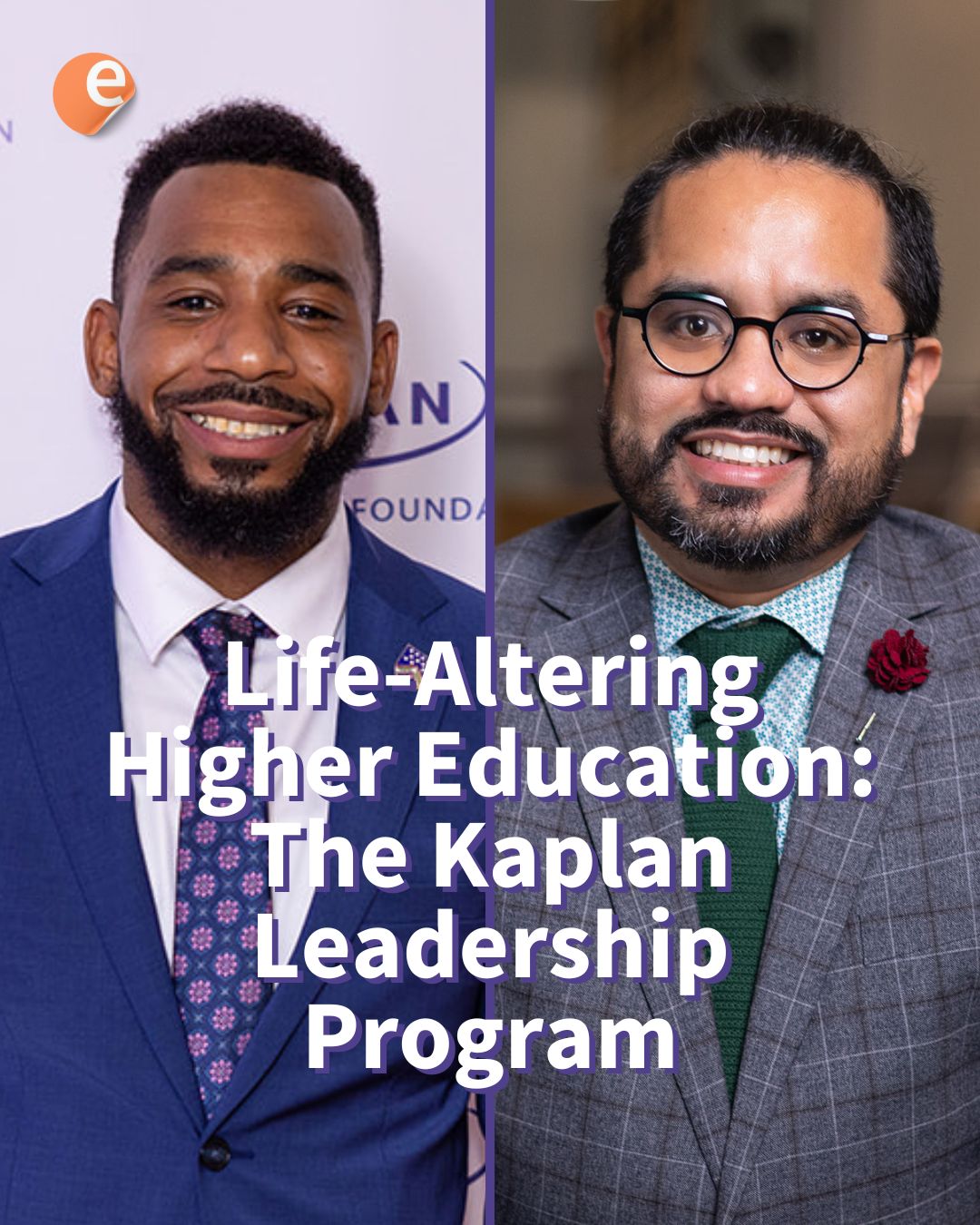2023 was a hallmark year for AI. Artificial Intelligence seeped into more areas of the world than ever, including classrooms and learning departments everywhere. We are witnessing the introduction of a new paradigm, the number of developments and twists of which may only grow larger, even if we don’t fully see every ramification yet.
But before getting into the many remaining questions and concerns, we thought it would be good to take a good look back. In this article, we’re looking at key developments in the Year of AI, in learning and education. We’ll talk about the key issues, notable technologies and protagonists. How did they influence our classrooms and students in 2023?
Let’s relive some highlights together!
Identifying the salient and subtle AI in education trends with expert help
Matt Donovan learned about the potential of AI, slowly at first. Then he saw terms like ChatGPT and Midjourney becoming part of the conversation. As Chief Learning and Innovation Officer at GP Strategies, he realized he needed to act fast.
«I am absolutely an AI enthusiast. But I am 100% pro human. Just to lay it out there.»
GP, alongside Open LMS and eLearn, held a wrap-up panel mid November. Top experts representing key protagonists of the AI and education scene were there. Authors and creators influencing the work of millions every day. Senior leaders from learning organizations serving Fortune 500-level companies. Attendees from all over the world, at various seniority levels.
Matt was not alone in his realizations. The panelists agreed on the revolutionary possibilities of the current generation of AI. It can lead to personalized, adaptive, engaging experiences in ways never seen before. It can also come with side effects, challenges and concerns, some of which we can know of, predict and control. And many we cannot. Another important point was about AI not being the only technology influencing classrooms. VR, blockchain, neuroscience applications, to name a few. Neither of which stopped evolving, and are now about to mesh with AI in groundbreaking ways.
And yet, there was also an overarching feeling of being part of a clinical trial. Or some form of experiment. Host Stephen Ladek had a more colorful take on it, echoing a talk he’d given a few days before in Baltimore, at CAEL 2023:
«[It’s] the phenomenon of the frog in the boiling water. The frog is sitting as the water it’s in continues to heat up. It doesn’t know of the transformations that are happening… We see changes every day, but I am interested to talk about those longer term transformations.»
They both have made it a personal commitment to stay on top of AI in education. From GP, a “Digital Matt Donovan” curates an AI Resources portal. There, you can find information on AI’s responsible use, impact, and adoption in the workplace. It also includes a selection of practical tools and use cases.
From April to November, Ladek hosted eLearn’s AI in Learning virtual series. More than 30 experts from all over the world shared real-world experiences, products, and leadership thinking. The conferences delved on AI, education, and learning in three areas: Practical Tools you can use today, remaining Challenges, and what the Future may have in store. Ladek also hosts the eLearn Podcast, where AI-focused topics and guests have become a growing occurrence.
From Matt and Ladek’s conversations —with experts and each other— the following core topics emerged:
Disclaimer: Open LMS is the owner of eLearn Magazine. GP Strategies and Open LMS are part of LTG.
The top AI in learning and education threads of 2023
Leveraging AI in Education and Assessment
Educators with technological inclinations —including a majority of eLearn subscribers— found in Generative AI tools a fantastic new toy to play with. Soon the budding practice of “prompt engineering” became commonplace among educators as it was across the globe. In a good number of cases, teachers learned about it from their own students who were making the most of ChatGPT to answer any questions, get homework help and yes, use it to do their work for them.
So while a majority of tech-savvy educators support the use and implementation of AI in the classroom, key groups remained hesitant or opposed outright. Is there common-ground advice to sort this out?
Ethics, Responsible Use, Integrity and Transparency of AI in Education
For Michael Vaugh, the answer is yes. The influencer and Adoption and Education Specialist at Open LMS offer straightforward advice: Just talk. Start with having open conversations about the technology with your students.
At last September’s Learning Live conference in the UK, Michael touched on the ethics of AI in L&D. Like conversations, ethical issues on the uses, data and purposes of AI go both ways. Students need to know the ethical framework in which AI can play a positive role. And they also need to know how to protect themselves from misuses that may have a negative effect on them.
In particular, learners of all ages should be aware of the tools and rights they can make use of. According to a report by Affirmity, it is likely that regulations related to hiring and government contracting in 2024 include disclosures related to the use of AI and automation technologies.
While the debate may continue, there are pragmatic courses of action worth considering. Case in point: The use of AI-based plagiarism tools. A vast number of solutions is already available in the market, although their efficacy can vary greatly. As it turns out, figuring out whether the author of a piece of text is a human or not is not straightforward, and it will grow increasingly difficult to determine.
In any case, issues of integrity and cheating, while still prevalent, will not be the only ethical issues to expect in 2024 and onwards.
AI and Accessibility
Many in the eLearning community have been looking forward to an AI accessibility revolution. Then Global Accessibility Awareness Day came last May, and the excitement was palpable. Every year, the event has become a tradition. And this time, it became a celebration of the technologies that help us all connect and learn.
Among the ways the AI paradigm can revolutionize accessibility in education, one stands out: The ability for AI to quickly ensure and validate compliance. Adherence to rules and regulations, often for fear of fines and other consequences, tends to become the one talking point when it comes to accessibility. Thanks to AI, it might finally be possible to look beyond. At GAAD 2023, speakers discussed equity, personalization and designing universal learning experiences.
Still, not all effects of AI on accessible or equitable learning are positive, starting with the question of AI access itself. If previous history repeats, it might take a generation or two before the value of this revolutionary technology reaches everyone.
AI and Educational Leadership and Reform
Chaos could be a way to frame the race of AI as it joined programs and workflows for people everywhere. It is also fair to point out the growing number of cases where AI was successfully introduced. By augmenting existing curricula with AI, or making it part of the contents and structure, not only they provided a sound response to the market. Organizations also found themselves in a better place to reap rewards later on, both in terms of the educational outcomes and the bottom line. Perhaps the most comprehensive resource for use cases is made available by GP, and hosted by Digital Matt Donovan.
When it comes to the ultimate impact of AI in education, it is important to think fast and slow. Leaders and department heads have the ability to take action now and start introducing AI across the board. But, while it is tempting to believe that internal frictions and resistance to change are the main roadblocks toward better AI adoption, in reality the call to embrace AI cannot be seen as a blanket statement. Leaders have the right and duty to carefully evaluate the value and the costs associated with integrating AI, on a case by case basis.
AI in the workplace, from Recruitment to Professional Development
AI demonstrated its value as an ally in the education-to-work pipeline, by providing better ways to articulate processes and agents, and paving the way for better coordination down the line. AI demonstrated its ability to support HR departments, from building job adverts, developing smart upskilling programs or providing better guidance to applicants and employees in decisions pertaining to their finances and well-being.
On an individual basis, AI became the assistant people have always wanted. This, unfortunately, led to a number of instances where AI was not properly implemented, if not in outright violation of company policy. By all means, leverage AI to build robust processes and aid your own learning; but do not let AI make crucial decisions on behalf of yourself or regarding other humans, advises Taylor Ramchandani, VP of Strategy at Affirmity.
Notable AI technologies and solutions for learning and education
Looking back at the year, we identify key solutions that have remained valuable in the eyes of the people throughout the year, and are likely to continue moving forward with responsible, beneficial AI solutions in 2024 and beyond:
OpenAI ChatGPT Plus: Top multi-purpose AI tool
There is little doubt OpenAI kicked off our current age of generative AI, and continues to be the reference for most professionals in terms of capability and ease of use. It also became coupled with some of AI’s biggest challenges, perhaps atop the list that of AI hallucination.
But don’t expect the throne to be safe. New products and releases by Big Tech, the Open Source LLM movement and even custom-made AI could make for a challenging and entertaining space.
OpenAI Chat plugin: Top open purpose chat available in the world’s most popular LMS
A simple, yet powerful add-on for LMS including Open LMS and Moodle™, it is also a testament to the importance of fostering an open source community. It plugs the powerful OpenAI APIs including Completions and Chat, allowing teachers to provide custom instructions and samples of questions and answers, to make answers more precise and relevant. It is also possible to adjust the personality of the chat. It requires an OpenAI license key which has usage-based rates. And since it is based on their LLM, it is still prone to known issues such as prompt hallucination.
Copyleaks: Top AI writing detection technology
The company behind the popular plagiarism detection tool debuted AI writing detection capabilities in the second half of the year. It can analyze writing patterns in over 8 languages, leveraging a database of trillions of pages of original content. Put it to the test here.
A research paper, so far considered the most influential evaluating AI writing detection capabilities, found Copyleaks the overall best alternative across the 8 largest competitors in the market.
GP Strategies: Top Artificial Intelligence Consulting Solutions
Based on its proprietary “6 ‘Ps’” framework, GP’s work builds solutions touching on the Position, Portfolio, Product, Productivity, Protection and People; and its based on the award-winning experiences with clients including 140 Fortune 500 companies.
Gomo’s OpenAI Asset Translation: Top Multilingual Generative Tool
Based on the OpenAI APIs —requiring a subscription—, it features a course wizard that lets you build your content in a simple, well-structured way. This enables the tool to provide a translation to virtually any language, using state of the art AI. The output can be exported in XLIFF format, making it easy to review by a professional translator.
Breezy HR Candidate Match Score: Top recruitment tool
Built on top of the industry-leading applicant tracking system solution, the match score is designed to reduce guesswork by providing timely and accurate decision-making input. This is achieved by a highly visual solution that provides clear ways to compare candidates and display matching scores.
Bridge: Top AI-Powered Skills Recommendation Platform
Bridge has taken a step ahead in the LMS, which we expect to be full of movement in 2024. For now, the corporate-focused learning platform shines with out-of-the box recommendations for skills, courses and lesson plans. Bridge’s machine learning engine automatically tags the courses by looking at its internal contents in order to provide the recommendations and make search more efficient. In addition, industry-specific upskilling trends are available thanks to its partnership with labor maker data provider Lightcast.
eLearn’s AI in Learning Summit: Top AI in education community and event
Our very own series of events attracted attendees from all over the world and lively conversations on a monthly basis. The speakers represented cutting-edge thinking and development work, representing leading organizations, with a roster on par with some of the most renowned education conferences in the world. Participants had complete free access to all the content in the year, and a well-populated Discord community with Q&A, resources and direct support.
Disclaimer: Gomo, Breezy HR, Bridge, Affirmity, GP Strategies and Open LMS are part of LTG. eLearn Magazine is part of Open LMS. Copyleaks is a technology partner of Open LMS.
If you want to know more
- Check the AI in Learning virtual summit
- Listen to the AI-focused episodes of the eLearn Podcast
- Check out GP Strategies AI Resources portal
Disclaimer: Gomo, Breezy HR, Bridge, PeopleFluent, GP Strategies, Open LMS and eLearn Magazine are part of LTG.








